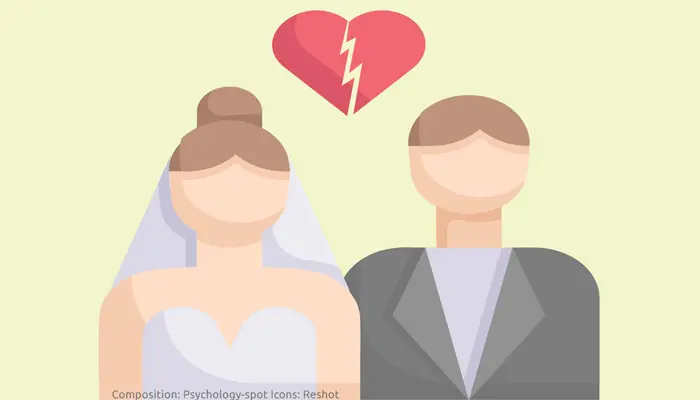
In a long-term relationship, our identity is increasingly intertwined with that of our partner. Elizabeth Barrett Browning described it perfectly when she told her husband, Robert Browning, “I love you not only for what you are, but for what I am when I’m with you. I love you not only for what you have done for yourself but for what you are doing of me. I love you for the part of me that you bring to light”.
In fact, in some cases this synchronization is such that we can end up confusing our traits with those of our partner. Therefore, it makes sense wondering what happens when the relationship breaks. Does that mean that our personality will change? Does our personality influence the way we deal with the breakage so that we stay alone for longer or prompt us to look for another partner right away?
The changes that take place in personality when a relationship ends
Men and women do not usually react the same way to the breaking of the relationship. A study of the Baltimore National Institute of Aging found that the effects of divorce differ according to gender. These psychologists analyzed the personality of over 2,274 people over 40 and returned to meet them between 6 and 9 years later. So they asked them what had been the most important events of their life and found out how their personality had changed.
Thus they found that women who had lived a divorce showed a greater propensity to extroversion and were more open to new experiences, which can be attributed to the liberating effect of the break. Conversely, divorced men seemed to be less aware and emotionally more unstable, probably because they lived the break as a demoralizing event.
But not all studies met this pattern. A group of German researchers analyzed the traits of the personality of over 500 middle-aged men and women for three times over 12 years.
They discovered that divorced men and women had become less extroverted. However, this is probably due to the fact that with the break they lost many friends who shared with their spouse, which meant they had fewer opportunities to socialize. It’s interesting to note that these people showed a decrease in confidence, perhaps because they no longer had to sustain continually the other.
It is clear that although the effects on extrovergence are not very significant, they can have a major impact on a person’s life, especially if we consider that extroverted people are more likely to encounter a new partner and remarry.
How fast you can turn the page depends on your personality
Breaking a relationship not only slightly changes our personality but also our way of seeing life and influences how we react to this situation. A study conducted by psychologists at the University of Leuven analyzed the personality of over 2,000 people who had lived a divorce to find out what kind of new relationships people make during the next seven years.
So it was possible to observe that extroverted people were more likely to recover quickly than others. Those who tended to neurosis, on the contrary, were more inclined to remain alone during the seven years or move from one relationship to another without finding the right person to establish a solid relationship. However, people who showed greater awareness were more inclined to form a serious relationship and this lasted much longer.
One reason why breaks are so distressing is that they can lead us to ask who we are, especially when it comes to a long relationship, since our identity is intertwined with that of our partner so much that when we lose him/her, it is as if we had lost a part of ourselves. This means that the concept we have of ourselves contracts and we have the feeling that we do not know exactly who we are, what we are or where we are headed. These feelings can be particularly painful for some people.
It is interesting to note that Stanford University psychologists have found that those who had a rigid vision of themselves tend to assume the rejection as something more personal, feeling that the rupture revealed something negative about their character and, consequently, the experience was even more distressing.
The good news is that our personality changes over time, so it is possible to meet a positive way of interpreting the break, especially by remembering that we are complex and evolving people able to learn from our mistakes and move on. This view can relieve, to some extent, the painful effects of the refusal.
Sources:
Sodermans, A. K. etl. Al. (2016) Effects of personality on postdivorce partnership trajectories. Journal of Social and Personal Relationships: 10.1177/0265407516665250.
Howe, L. C. & Dweck, C. S. (2016) Changes in Self-Definition Impede Recovery From Rejection. Pers Soc Psychol Bullan; 42(1):54-71.
Allemand, M. et. Al. (2015) Divorce and personality development across middle adulthood. Personal Relationship; 22(1): 122–137.
Costa, P. T. et. Al. (2000) Personality at Midlife: Stability, Intrinsic Maturation, and Response to Life Events. Assessment; 7(4): 365-378.



